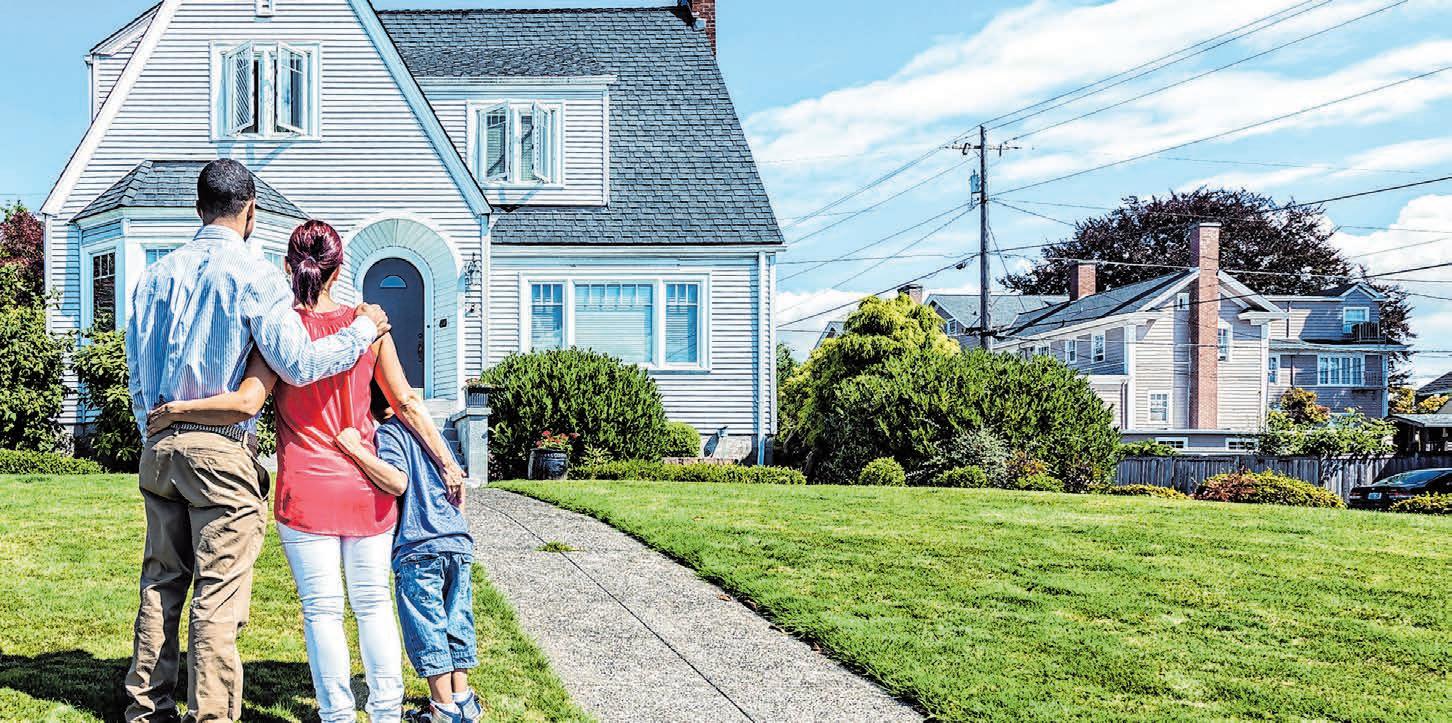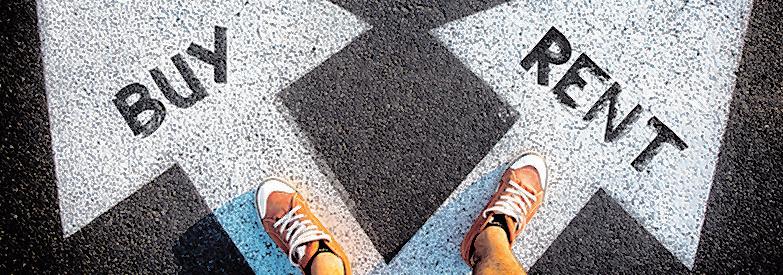
3 minute read
Should I Buy A Home Or Keep Renting? Key questions to ask yourself about this major decision
Many renters dream about eventually owning their own home. There can be many perks to becoming a homeowner—from having more control over your space to building equity and potentially benefiting from rising home values. But it also might be one of the biggest financial commitments you’ll ever make, and it’s not the right move in every situation.
Read on for key questions to consider as you’re weighing this momentous decision. 1
Advertisement
Are you truly in a financial position to buy?
If buying overstretches your finances, you might be less able to cope with a financial emergency or save for other important goals like retirement. Plus, an inadequate down payment or subpar credit score might leave you at a disadvantage if you’re trying to get an offer accepted in today’s competitive buying market.
The relevant aspects of your finances include:
• Your income: If you don’t have stable, sufficient income, it might not be the right time.
• Your down payment: Remember that you typically need a down payment of at least 20 percent to avoid paying for private mortgage insurance (which protects your lender if you’re unable to make your mortgage payments).
• Your credit score: Without solid credit, you might not qualify for a favorable mortgage rate or even be approved for a loan in the first place.

• Your other debts: One guideline is that your total monthly debt payments shouldn’t exceed 36 percent of your pretax income. If you have other debt, there may be less room in your finances for mortgage payments. 2
Will you stay for at least a few years?
When you buy, you’ll face a boatload of one-time expenses, like broker fees, mortgage origination fees, and title insurance. The longer you stay put, the more time you have to spread out those costs and for your home to potentially rise in value.
If you’re planning to stay less than three years, it likely doesn’t make financial sense to buy. Staying less than two years can come with particular tax disadvantages, because you generally won’t qualify for a capital gains tax exclusion. This means you’ll owe capital gains tax on the full amount of any increase in your home’s value.
3
The price-to-rent ratio: Take a monthly rent figure and multiply it by 12, so it’s an annual number. Divide the purchase price of a similar property by that annual rent number. A ratio greater than 20 generally weighs in favor of renting, while a figure less than 20 generally favors buying.
4
Which offers better value in your area?
You might assume buying is a better value because it lets you build equity in a home. But that may not be the case if rents are low relative to purchase prices in your area.
In any comparison, first make sure you’re looking at similar properties in the same area (i.e., don’t weigh renting your city studio against buying that country cottage).
Would you still want to buy if your home’s value doesn’t rise?
Although home prices have historically risen over long periods, there’s no guarantee that they will in any given time frame or in any particular area. Plus, what matters for you will be the value of your specific property, which can be influenced by everything from the local economy to whether your neighbors take good care of their lawns.
Think about how you’d feel if your home’s value didn’t budge in more than 10 years or didn’t rise as much as inflation. If you buy, you’ll need to accept the possibility that your home won’t be a great investment.
5 What does your heart say?
Buying a home isn’t just a financial transaction. It’s also a source of added responsibility, and for many people, pride and satisfaction. You want to make a decision that you can feel good about years down the line.
Ask yourself if you feel ready for the level of commitment that owning a home entails. If being on the hook when the basement floods or the roof leaks terrifies you, it could be you’re not quite there yet. On the other hand, if you know you want to put down more permanent roots, then you might be ready to take the next step.
Ultimately, the numbers can help you decide, but they can’t decide for you.
Looking to bring your homeownership dreams closer to reality? Consider setting up a savings goal to help you build your down payment or learn more about the steps in the homebuying process.
—Fidelity Investments










